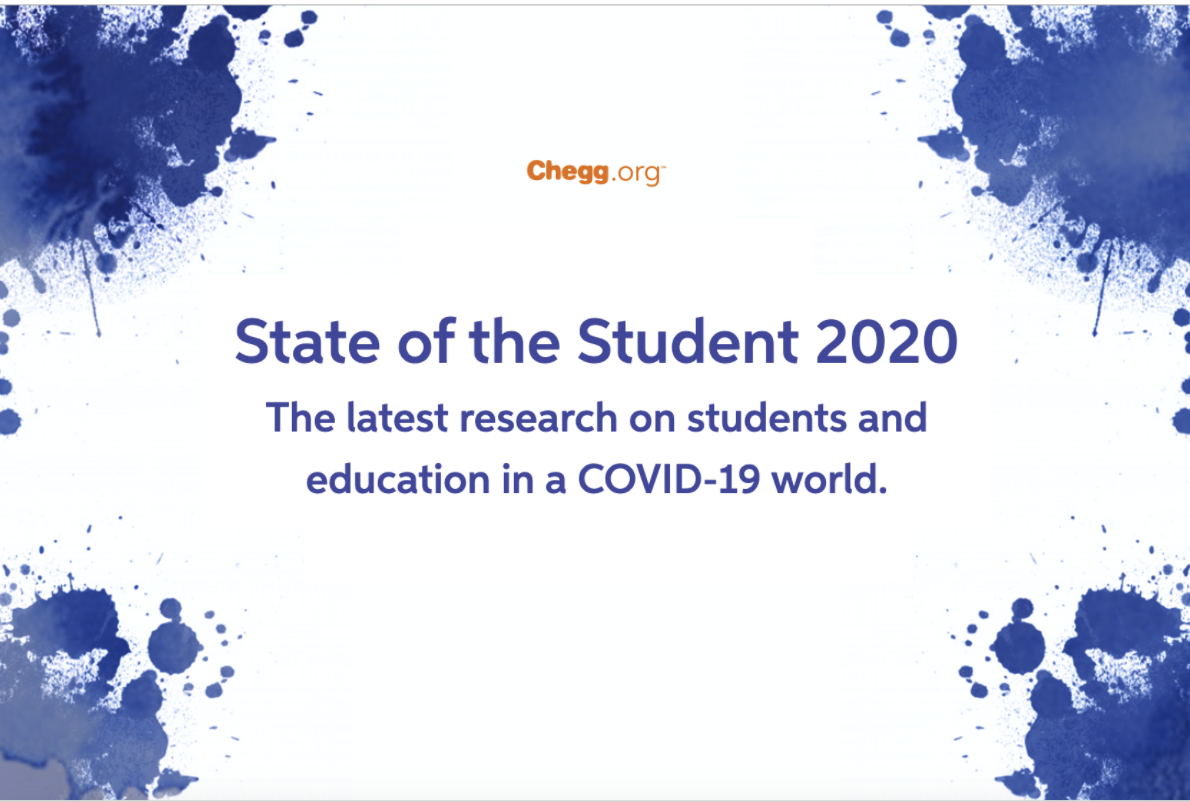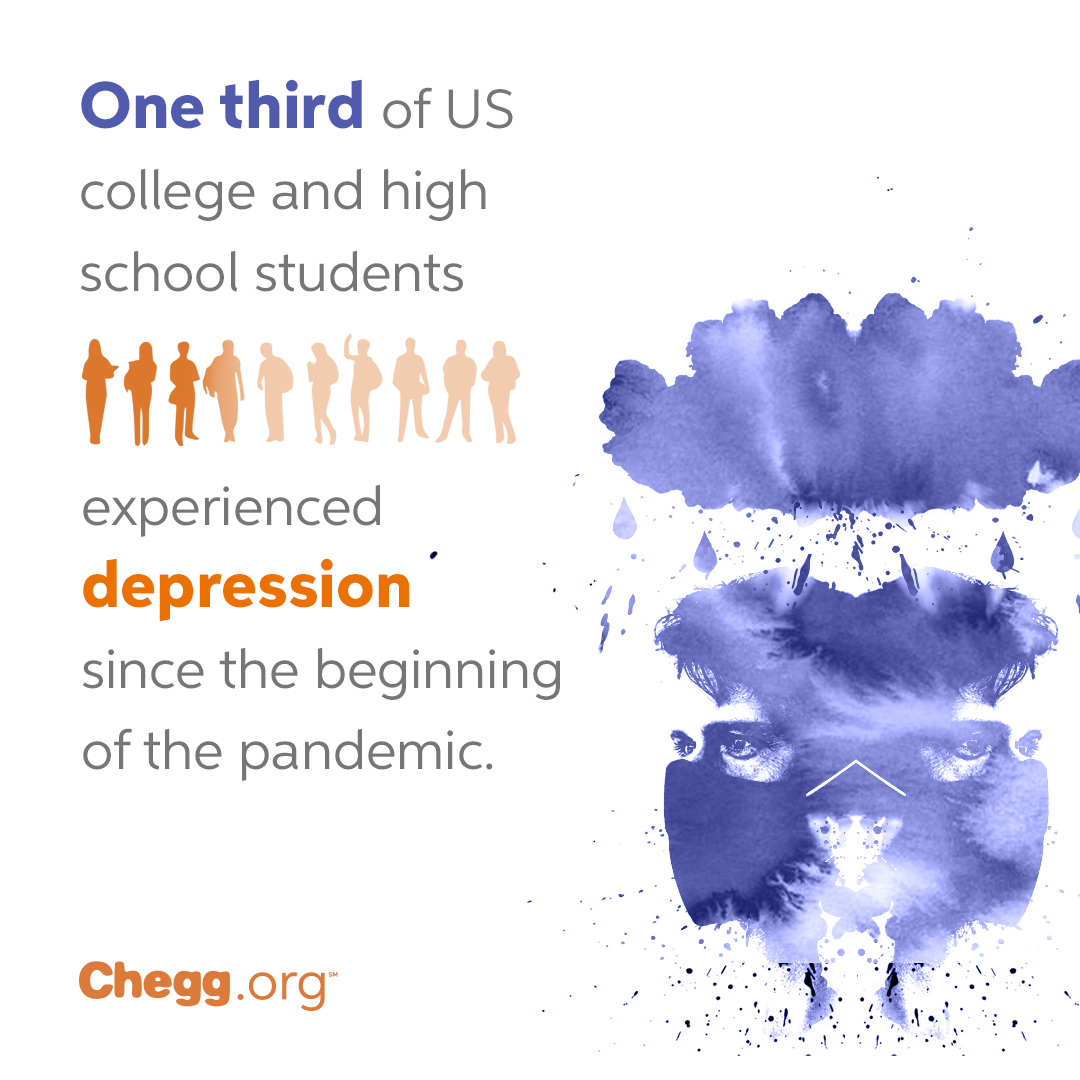
For the last two years, Chegg.org has published an annual State of the Student Report, which highlights insights from students across a representative spectrum of demographics and colleges, and examines the most important issues facing them both on and off-campus, including the cost of education, barriers to education, food insecurity, mental health, and online learning. Given the rapidly changing landscape due to COVID-19, this year, Chegg.org published a series of reports that looked at specific topics including how students were impacted by the sudden shift to virtual learning, how they are feeling about returning to school this fall, their thoughts on social injustice on campus, and a look at how the pandemic has affected student mental health.
While Chegg continues to build tools and resources to help students with their coursework, Chegg.org is focused on breaking down the barriers students experience on their path to education, advocating for policy change to better support students, partnering with nonprofits working to put students first, and publishing research so that stakeholders can better understand the modern student.
While the research showcases how students are feeling, it also highlights their specific thoughts on what can be done to make things better. Given how many decisions are made daily by professors, universities, and community and policy leaders that directly affect students, our goal for this year's State of the Student series was to help those making decisions better understand student needs.
The research surveyed a combination of "Chegg Heads," a panel of students who volunteer to participate in surveys to support Chegg's Student Insights team, as well as national samples of students. The surveys took place from April - August, 2020.
In the reports focused on online learning, it was important for us to showcase what online classes actually look like for students, how students were feeling over the summer given the unknowns regarding the upcoming school year, as well as how they think online learning could be more successful.
For the social justice report, we not only set out to learn how students are feeling right now, but also learn about what they are experiencing in the classroom, how they think the hiring process could change, whether or not they believe voting can bring about systemic change, and if they intend to vote in this year’s election.
For the mental health report (titled COVID-19 and Mental Health: How America's high school and college students are coping during the pandemic), we partnered with leading NGO's focused on mental health of students specifically: the Ad Council's Seize the Awkward campaign, the Jed Foundation, the American Foundation for Suicide Prevention, and Lady Gaga's Born This Way Foundation, and the report was released on World Suicide Prevention Day. The partners provided feedback on the research questions, helped craft the report, and shared the findings across social media, traditional media, and other outlets.
In addition to showing how the pandemic has impacted students' mental health, we also wanted to find out who students were reaching out to, as well as who they wish they could talk with more. We were curious whether or not students felt like they could reach out to friends, family or counselors for support, and the differences in who they are reaching out to based on age and even gender. We also wanted to know whether or not resources provided by schools were beneficial, so that schools can better understand how they can support their students.
Another important element of the research was a thought-leadership piece from Chegg's Chief Communications Officer and Chegg.org Advisory Board Member, Heather Hatlo Porter. In her open letter about her own mental health journey and suicide attempt as a young teenager, Heather humanizes why this is such an important issue, why Chegg.org is invested in supporting students’ mental health, and why the data about students feeling hopeful and supported when their friends do reach out is so important.
Our team's goal was to provide an in-depth understanding of what students are experiencing as a result of the pandemic and the social unrest impacting our world in 2020, and to provide insights to help others make decisions to better support them. The result was a four-part series that we published from the end of July - early September, as students returned to campus during a time of so much uncertainty.
While all of the 2020 State of the Student reports have been shared broadly across social media, the mental health report specifically has already been strongly received by media outlets such as Insight Higher Ed and Ad Age. The findings in these reports will be important as Chegg and Chegg.org continue to build and provide resources to help students succeed in the classroom and beyond.









